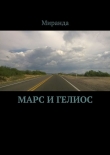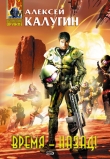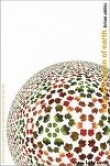
Текст книги "The Long Mars"
Автор книги: Terence David John Pratchett
Соавторы: Stephen Baxter
Жанры:
Научная фантастика
,сообщить о нарушении
Текущая страница: 19 (всего у книги 25 страниц)
34
THE CREW OF THE Armstrong I were not difficult to find, a few worlds further out from the Napoleons, and unreasonably grateful for their rescue. Maggie allowed a day’s partying to celebrate.
Then the mission continued. The airships Armstrong and Cernan pressed on into the unknown.
The airships had left West 5 in January. It was now May, and life on board wasn’t getting any easier, especially when they crossed through uninhabitable worlds, and the ships had to be locked down. Harry Ryan was growing quietly concerned about the state of his engines. The quartermaster, Jenny Reilly, sent Maggie depressing reports about the ships’ ability to withstand a continued push across worlds that could not provide them with even basic necessities – edible foodstuffs, oxygen, sometimes there wasn’t even potable water. The crew were exhausted, stir-crazy and increasingly fractious. Joe Mackenzie fretted about their health, the illnesses and injuries they were slowly accumulating, and the steady depletion of his medical supplies. But then, he always did.
But despite all the niggling problems Maggie still had her eyes on the nominal target she’d been given for this mission: to reach Earth West 250,000,000. The best estimates showed that the goal was still well within the ships’ consumables budget and system lifetimes. And it was after all a prize worth achieving; once it was done everybody on board would go to their graves still cradling the memory of it. This jaunt would dwarf the famous Chinese expedition to East 20,000,000 five years ago – and it would by quite some way surpass even the one-way journey of the Armstrong I, which had ultimately reached the world of the young Napoleons, more than a hundred and eighty million steps out. That was a fantastic journey that had for too long gone unreported and needed its story told, even if it would take some of the gloss off what she’d achieved in Armstrong II.
The trouble was that the final leg from Planet Napoleon to Good Old Quarter Billion, as she had taken to calling it, represented over a quarter of the total mission still to be completed – at least three weeks’ running time, probably more like over four. And of course they would have to come back the same way.
And as the journey wore on, and the Earths became ever more exotic and challenging, Maggie sometimes felt as if it was only her own willpower that held the mission together.
The latest narrow band of worlds hosting complex life, the Bonsai Belt, had terminated at around Earth West 190,000,000, and they found themselves drifting once more over endless purple scum worlds.
Earth West 200,000,000 was another numerical milestone that Maggie used as a chance for a couple of days’ rest, recuperation, systems check. But the world itself was one of another band blighted by supercontinents, one hemisphere a vast bowl of Mars-red desert, the other a featureless mask of lifeless ocean. The oxygen levels were low here, and she couldn’t in all conscience sanction any shore parties, which did nothing to help morale. Then, beyond Earth West 210,000,000, oxygen levels once more collapsed entirely. This persisted even though, after around West 220,000,000, the supercontinent features abruptly fractured.
And beyond that point, the crews of the airships Armstrong and Cernan encountered increasingly unfamiliar and difficult Earths.
There were a lot more Gaps, for one thing, holes in the Long Earth that had to be cautiously, but hastily, traversed. Worlds with very exotic biota. Such as a thin band of worlds dominated by tremendous trees, trees whose slim trunks towered above the twains, and Gerry Hemingway’s best guess was that they might be three miles tall, their canopies – wonderfully, impossibly – higher than most mountains . . .
There were worlds where the atmosphere was much thicker than on the Datum, or much thinner. The crews had to battle with the buoyancy of the ships in such unfamiliar airs, and the engineers fretted about corrosion by acidic gases, and the battering of ultraviolet from the unscreened sun.
There were worlds with one moon, bigger or smaller than the Datum’s, or many moons, or no moons at all.
There were even worlds where the gravity was different. On the low-weight worlds the ships floated over landscapes that generally looked more or less like the Mars of the Datum sky, with thin air and huge mountains and canyons that could span continents. In the partial gravity the airships were difficult to handle, the crew played jumping games, and the trolls hooted in dismay, tumbling. On other worlds, though, the gravity was stronger than on the Datum. Under thick blankets of atmosphere, winds scoured landscapes bare of any life but stunted-looking trees. The ships, their buoyancy inadequate, were pulled towards the ground, and if they lingered any length of time the crew complained that it felt as if packs of rocks had been loaded on their backs, like a punishment-detail training exercise.
Hemingway had some ideas about what was going on. At the root of Earth’s formation was violence, as a cloud of dust spinning around a young sun had collapsed into rocks that smashed each other to pieces – or, sometimes, collided to form bigger rocks, which in turn formed bigger rocks yet . . . Emerging from this chaos, Datum Earth with its moon had in the end been born as a result of a final titanic head-on collision between two young worlds, one Earth-sized, the other the size of Mars. It was all a series of accidents; it could have turned out lots of other ways. And now Maggie was finding sheaves of worlds so remote from her own that even that primordial sculpting had turned out differently.
Gerry wondered what this was telling them about the nature of the Long Earth, the relation of these parallel worlds to each other, and stepping.
‘How far away from the Datum model in terms of Earth’s formation can you go, before it’s no longer Earth at all? We know that even if an Earth is missing altogether you can step into the Gap remaining, but at least an Earth once existed there. But what if, for instance, an Earth hadn’t congealed at all – what if we found a cloud of asteroids kept from aggregating by some nearby gas giant, say? Is that where the Long Earth would terminate at last, and no more stepping would be possible?’
Well, they hit no such terminal condition on this jaunt. But to Maggie’s mind the most remarkable Earth of all was West 247,830,855.
This Earth was not a planet at all, but a moon: a mere moon, of a greater body. The moon-Earth was smaller than the Datum, hotter, the air denser – more geologically active, Gerry speculated, because of tidal squeezing by its big primary world. ‘It’s a mutant cross between Earth and Io, moon of Jupiter,’ he said gleefully. Yet even here they found life, and complex life at that. One drone returned a striking image of what looked like pterodactyls to Maggie, huge bony flyers swooping around an active volcano.
And the sky was dominated by the primary, a nameless world that had no counterpart in the solar system of Datum Earth. This too was a rocky world, more like Earth than a gas giant like Jupiter, say, but many times more massive than Earth itself. It was a big angry ball that hung unmoving in the sky, though the sun wheeled beyond it; the Earth-moon was so close to the primary that it was tidally locked, with one face turned forever to the giant world. And as the primary itself turned it revealed sprawling continents, tremendous oceans, dense, smoggy air, and flaring volcanoes to match the activity on its Earth-moon.
They stayed a full twenty-four hours to study this object. Maggie thought the crew took more amateur photographs of this world than of any other sight they’d come across, save only the wreck of the Armstrong I.
And, most tantalizing of all, on the primary’s darkened hemisphere, they saw lights. Maybe only campfires, but still . . .
‘It’s maddening,’ Maggie said to Mac. ‘We’d need a spaceship to get over there. We stepped a quarter of a billion worlds to get here. And now we can’t cross a few thousand miles to go see all that.’
Mac only smiled. ‘We have to leave something for the future to achieve. Damn, this bottle of Auld is empty. This ship is running out of single malt, just like most other essential supplies. I think I have an emergency ration in my cabin . . .’
Bowing to a petition by the scientists, and some of the more adventurous crew, Maggie left a small party behind to explore this Earth-moon further. Then they moved on.
35
ON MAY 24, 2045, four months after leaving the Low Earths, the US Navy airships Armstrong and Cernan reached their nominal target of Earth West 250,000,000.
The world itself turned out to be unprepossessing, barren, ordinary, but at least you could land on it with a facemask, walk around a little. The crew built a stone cairn, affixed a bronze plaque, set up a Stars and Stripes, took a few photographs. When Wu Yue-Sai showed images of a similar ceremony performed by the crews of the Zheng He and Liu Yang, who had reached Earth East Twenty Million, they built the cairn up a bit to make sure it was bigger than the Chinese one. The trolls looked out from the observation galleries – they weren’t about to wear facemasks to go outside – and sang a sweet barbershop-quartet kind of song, over and over as a round, that sounded as if it had been selected to celebrate the journey, about how it was mighty nice, a trip to paradise, with my baby on board . . .
Even Douglas Black came down to the surface, with his aide Philip at his side. At Maggie’s quiet order, while he was off the ship Mac was never more than a few yards from Black, with full medical kit to hand. Black looked around, smiled, chatted, and allowed himself to be photographed alongside the crew, but refused to do any more than that. This achievement was the crew’s, he said; he was only a passenger, cargo. He did collect a handful of the local dirt, and slipped it into a plastic bag: a mundane souvenir of an unprecedented journey. Maggie rather liked his lack of ostentation.
There wasn’t much else to do here. Some of the crew played an improvised game of golf as a tribute to Alan Shepherd, an American hero who was one of their own, a Navy man who had once played a golf shot on the moon.
Then they turned the ships around, metaphorically speaking, to head Eastwards, and home.
At this point Douglas Black made another rare emergence from his suite, and asked a special request of Maggie.
They had logged Earth West 239,741,211 on the way through, but had not lingered long. Now they returned, for a longer stay.
This was one of the smaller worlds, with a mere eighty per cent of Datum Earth’s gravity. On the local version of the North American craton, tremendous glacier-striped mountains strained for a sky laden with fluffy water-vapour clouds, and in the valleys impossibly spindly trees clustered. The animals too were tall, slender, graceful, even though a peculiar six-legged body plan had prevailed. This world was, according to Douglas Black, just like a Chesley Bonestell painting, and all of them save Mac had to look up that reference to see what he meant.
When Maggie authorized shore leave, the crew loved it. Delightfully, thanks to an atmosphere that happened to be especially rich in oxygen, you could walk around with no special protection whatsoever. Harry Ryan and his engineers wandered around planning how they would span mighty gorges with graceful viaducts. Snowy was at last able to indulge his appetite for the hunt, and went bounding away. Even the trolls seemed happy here, despite the low gravity, and they sang a new song, playfully taught them by Jason Santorini: ‘Lucy in the Sky With Diamonds’.
When the moon came up, Maggie could see the grey and the white, the lunar seas and the highlands, were all wrong. Proof, if she needed it, that this was far from home.
But – as Douglas Black announced to Maggie as they walked in convincing-looking grass, with Philip shadowing them, and Mac silently looking on – Black intended to stay here. ‘I found my real estate, at last,’ he said.
‘Hmm. On this world of all the worlds, of all the possibilities for life on Earth that we saw?’
‘I always knew what I was looking for, Captain. I had a quite detailed specification, and my staff have scrutinized the records of every single world we stepped through. And this place fits the bill, most nearly, of all those we have witnessed. Now, I have prepared for this possibility. In my sealed cargo I have everything required to establish a home here, safe, secure, provisioned. For now I need only Philip at my side, my staff, my equipment. I would ask only of you, Captain, that you take the news of this place back to the Low Earths, announce this location, stepwise in the Long Earth and geographically – I will give you the name of an appropriate agent to handle this, although of course the regular news channels will disseminate it – and in due course others will follow me here.’
Maggie was puzzled. But when she asked Mac’s advice, the doctor shrugged, evidently having no particular objection.
Maggie said, ‘I’ll tell you the truth, Mr Black. You might not be alone. Some of my younger crew are thinking of jumping ship and staying here. It’s an open secret. Thanks to my XO I can tap into the scuttlebutt.’
Black seemed delighted. ‘I would be glad of the company of young people. Of course we could assist each other . . . And are you thinking of permitting this?’
‘Why not? I can’t let the manning numbers run down so far that the ships themselves are compromised, of course. But we have some slack. My mission is more about planting flags than planting colonies, but my orders don’t expressly forbid it. It would extend the US Aegis in a concrete form, a pretty long way out. And it will be an international colony, if Lieutenant Wu is serious about staying.’
‘Ah! That delightful young officer. She would be very welcome. Her children will be tall and slender and have big chests for the thin air. Just like the Martians of Ray Bradbury! What do you think, Captain? How about yourself? You are healthy, still young. You too could stay, build bridges, raise babies.’
‘Oh, I think my own duty is clear, Mr Black. It’s home for me, with my ship.’
‘Of course, Captain. But will you allow me one privilege? Earth West 239,741,211: an efficient but cold label. Let me name this world, as if I were its discoverer. I will name it Karakal. Please record it in your log.’
That baffled Maggie, who had been expecting some name like Blackville.
But Mac recognized the reference. ‘Lost Horizon. The Tibetan mountain where they found Shangri-La, in Hilton’s novel.’ He looked around. ‘Ah, I see now. That’s the clue. You picked a world of gravity so low that even a lard-bucket like me can leap like a basketball star, and oxygen levels so high the air is like wine. Of course, I should have guessed. This Earth, you hope, is going to turn out to be a machine to keep you alive. Even reverse your ageing. Like this whole world is an extension of that oxygen tent you have in your cabin! Your very own Shangri-La.’
‘That indeed is the idea, Doctor.’
Maggie asked, ‘Can partial gravity really reverse ageing?’
Mac grinned. ‘It’s one of the oldest space-buff dreams, Captain.’
‘Yeah, but I thought low gravity was bad for you – leaching away the calcium from your bones, wasting your muscles, messing with your body’s fluid balance . . .’
Black said, ‘That’s true for zero gravity, Captain. Partial gravity is different. Surely this world’s pull will be sufficient to keep the muscles strong, the juices flowing as they should, with appropriate diets, exercise regimes and so forth. But by allowing the body to spend less energy just fighting gravity – the cells will oxidize more slowly, the joints, the ligaments, the dubious architecture of the spine will all be stressed significantly less – there is a strong argument that life spans could be significantly extended.’
Maggie turned to her chief surgeon. ‘Mac?’
He spread his hands. ‘There’s an argument, maybe. But not a shred of hard evidence. Very little research has been done on the effects of partial gravity, and won’t be until the day we have data from long-duration stays on Mars or the moon. However, it’s Mr Black’s choice, his money.’
‘Oh, come, Doctor; at my age, my position in my life, don’t you think it’s a gamble worth taking? And it’s not just my money by the way. I’m representing a consortium of backers – none of them adventurous enough to take this trip with me, but all willing to follow, in the next year or two. They will come with their staff, their own doctors . . .’ He smiled. ‘Now do you see the vision, Captain? Among my backers are Americans, Europeans, Chinese, politicians and industrialists and investors, some, frankly, closer to the dark edge of the law than others. Old money and new – some indeed who made a fortune out of the Yellowstone aftermath, for every disaster is an opportunity for somebody. Some people, you know, got rich even out of the fall of the Roman Empire. The Long Earth is still young, and we are very wealthy indeed; with time we’ll find ways to wield our influence even from this remote world. Now if you’ll excuse me – come, Philip, we need to find a location for our first settlement and get established before the airships leave. . .’
Maggie stared after him. ‘A community of the fabulously rich, Mac. Rich and ageless, if this all works out as he dreams.’
‘Well, it might. Oxygen and low gravity – that’s quackery, probably. But they’ll be bringing in teams of researchers who’ll have nothing else to do but find something that does work.’
‘And if so it really will be a Shangri-La. Without the monks.’
Mac grunted sceptically. ‘Or a community of struldbrugs, like Gulliver’s Travels – undying but ageing, and growing more and more bitter. A gang for whom even death will no longer bring an end to their clinging to wealth and power. Think of all the monsters of history who you wouldn’t want to see still around today, from Alexander through Genghis Khan to Napoleon . . .’
‘It might not be like that. Maybe they will give us a longer perspective.’
‘Hell of a gamble if you ask me. So are you going to allow this, Captain?’
‘I don’t see I’m in a position to stop him. He’s not crew, Mac.’
‘I guess. Well, I’m glad I won’t live long enough to see what grows from the seed you planted today.’
‘You old cynic. Come on, let’s get back to the ship and go home.’
36
THE GALILEO CREW had left behind the world of the sand-whalers and the monoliths with, as far as Frank Wood was concerned, a sigh of relief.
And it was only when they were safely in the air, passing over yet more clones of dead Mars, one every second, that Frank began to relax, that the military man inside him began, grudgingly, to release his hold on events. How they had got away from ferocious fire-spitting land-dragons and harpoon-hurling sand-whalers – not to mention some kind of monstrous unseen Martian tyrannosaur – without harm to themselves or their equipment, he had no idea. And he kept remembering that crustacean prince, as Frank had labelled him (or her) in his head, humiliated by his leader with one of Willis’s Stepper boxes. What kind of consequence was that going to have? But, he supposed, that was a problem for the future, not for right here, right now.
In the days that followed, while Willis paged through the screeds of images the whalers had retrieved for him from the monoliths, and Sally sank back into her own default mode of wary silence, Frank spent a lot of time asleep, nerves slowly recovering. He wasn’t as young as he used to be.
And he was only peripherally aware of the new Jokers the expedition came upon, and paused to study.
A flooded Mars, where, it looked like, the whole of the northern hemisphere was drowned by an ocean. Here beasts not unlike the sand whales roamed the land, while what looked like cities floated on tremendous rafts on the sea. ‘Fishermen’, crustacean types, came ashore in land-yachts to hunt the whales, just as on Earth land-dwellers harvested the fruit of the sea . . .
A drier Mars, whose copy of Mangala Vallis was nevertheless covered by forests, of tough, low, needle-leaved trees. Willis was tempted to linger here because he thought he saw two forest clumps in slow-motion conflict with each other: a war waged at the speed a flower grew. ‘Birnam Wood besieging Dunsinane!’ he said. But they could not afford a long enough stay to study this slow encounter properly . . .
A plain covered in rocky coils, like heaps of rope. Willis’s first guess was that these were some kind of volcanic extrusion. But when he took Thor down for a closer look the coils unwound into pillars of basalt, gaping mouths opened, and gouts of flame shot out at the hastily retreating glider: another variation on the theme of sand whale . . .
Once, Sally swore, on a moist but chill Mars, a glacial Mars, she saw a herd of reindeer, off in the northern mist, coats shaggy, antlers held high, animals much larger than their terrestrial equivalent. But the others could not see it, and the cameras could not penetrate the mist for a clear image. None of them understood what this vision, like a race memory of the Ice Age, might mean . . .
And, every so often, Frank thought he saw flickering forms in the valleys of Mangala, far below. Translucent sacs, like survival bubbles; gaunt forms like landed sand-yachts. As if they were being followed. Probably the product of paranoid dreams, he thought.
Finally, eleven weeks since the landing and nearly three million steps from the Gap, Willis Linsay said he thought he had found what he was looking for.








